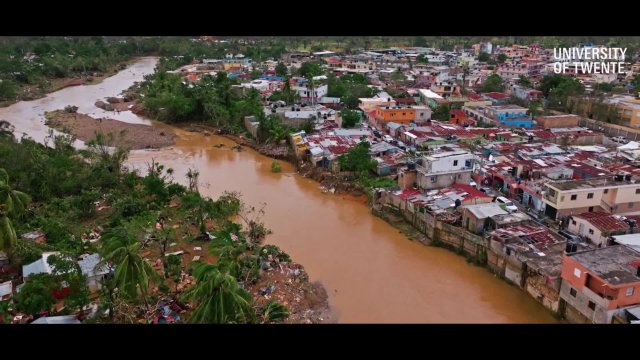In September 2025, the University of Twente is launching a new, interdisciplinary Master’s programme in Humanitarian Engineering. This unique initiative is a collaboration between three faculties—Engineering Technology (ET), Geo-Information Science and Earth Observation (ITC), and Behavioural, Management and Social Sciences (BMS)—reflecting the truly cross-disciplinary nature of the field.
The programme is designed for students who want to make a real-world impact by working at the intersection of technology and society. Through challenge-based learning, students will engage with complex, real-life problems in humanitarian contexts, gaining the skills and mindset needed to become effective and empathetic Humanitarian Engineers.
Structured around three core domains, Humanitarian Aid Engineering, Resilience Engineering, and Sustainable & Responsible Entrepreneurship, the programme integrates technical knowledge with social insight to address urgent issues in underserved and resource-limited communities.
This two-year, English-taught Master’s programme (120 EC) prepares students to create sustainable, context-appropriate solutions where they are needed most. Would you like to know more about the Master Humanitarian Engineering at the University of Twente? Make sure to visit our programme website.
What will you learn?
At the heart of Humanitarian Engineering lies the belief that solving complex humanitarian challenges—such as poverty alleviation—requires both technical innovation and social understanding. In this programme, you’ll learn to become not only a skilled engineer, but one who is deeply attuned to local contexts, stakeholders, and available resources. You’ll be trained to recognize the needs of underserved and marginalized communities, and to design or adapt solutions that truly work in their environment.
Take, for example, the development of a water filtration system. A design created in the Netherlands, with its advanced infrastructure and high water quality, may not be suitable for use in a refugee camp. As a Humanitarian Engineer, you’ll learn how to listen to communities, assess real needs, and modify solutions so they are appropriate, effective, and sustainable.
Throughout the programme, you’ll work on interdisciplinary, real-world projects that reflect the complexity of humanitarian settings. These could involve challenges in areas such as water and sanitation, healthcare, infrastructure, or institutional development. You’ll collaborate with students from diverse backgrounds, combining insights from engineering, social sciences, and beyond—while learning to navigate different cultural and political systems.
Besides MSc Humanitarian Engineering
Whether you're still pursuing your Bachelor’s or already enrolled in another Master’s programme, there are plenty of ways to get involved in Humanitarian Engineering.
BACHELOR COURSES
MASTER COURSES
Want to focus your BSc or MSc thesis on Humanitarian Engineering?
If you're interested in completing your graduation project within the field of Humanitarian Engineering, we would love to hear from you! Reach out to one of our domain coordinators to explore available topics and opportunities.

